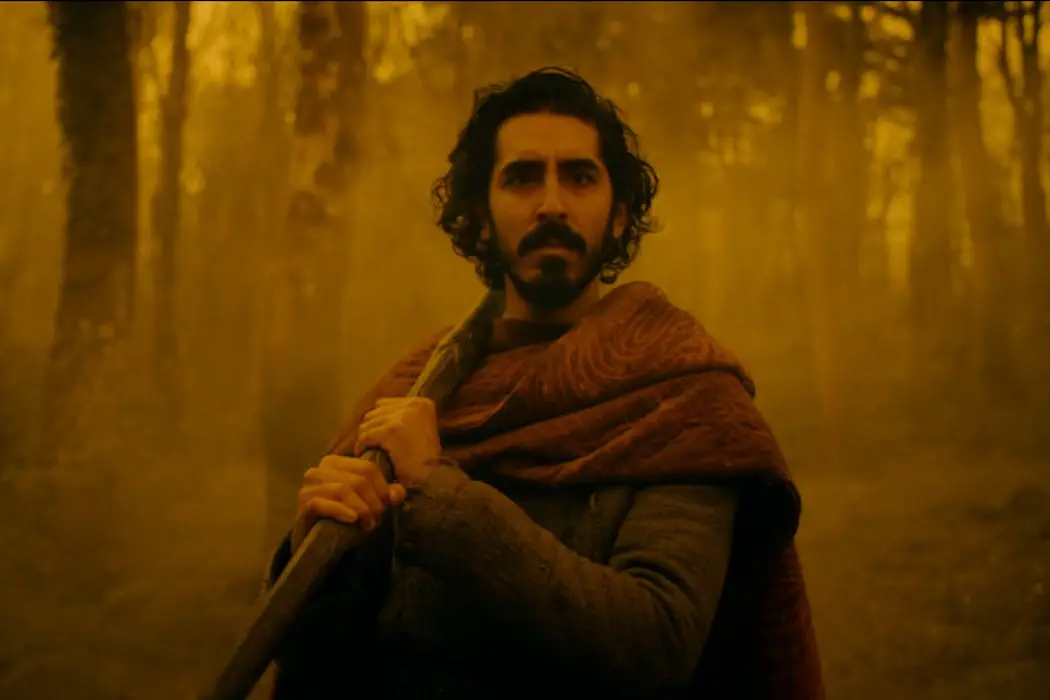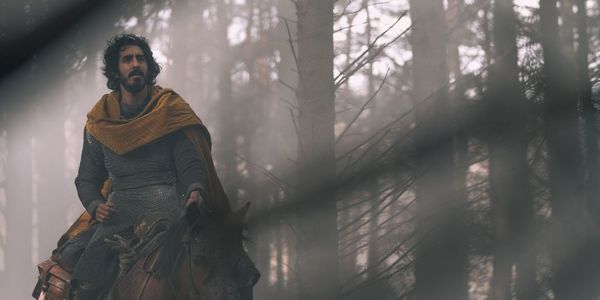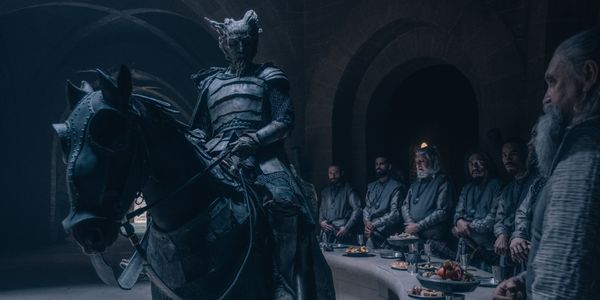THE GREEN KNIGHT: A Journey That Travels At Its Own Pace

Soham Gadre is a writer/filmmaker in the Washington D.C. area.…
As far as Arthurian legends go, The Green Knight is an immersive, beautifully photographed if sometimes frustratingly structured fantasy adaptation. As far as David Lowery films go, it’s easily his best (though this evaluation comes from someone who was never a fan). Taken from the legend of “Sir Gawain and the Green Knight,” there are many departures and adjustments to the final film and having read and watched either, I can say that Lowery’s approach is commendable in its surprisingly authentic blending of Pagan and Christian ritual and beliefs that are always in the backdrop of Arthurian legends. He also maintains a nice portion of the humor and silliness of the original tale while deepening and intensifying themes of destiny, honesty, and courage that are part of chivalric traditions.
A Well-Cast, Visually Alluring Fable
The casting of Dev Patel is sure to be a topic of social discussion but what’s significant is he fits perfectly into the role of Sir Gawain from a physicality and personality standpoint. His frame, demeanor, and that wide-eyed slack-jawed thing he does a lot lend to him being perfectly in line with Gawain’s immature and self-doubtful characteristics that are put to the test in this journey. Everywhere he goes he is duped, unable to pick up cues be they intellectual or sexual. Patel does well with the mix of dread and comedy that Lowery weaves into the tale, with slight jokes that fit thematically – like the whole encounter with Winifred and her lost head – but never feel forced. Most of the other actors are serviceable in their roles, but Barry Keoghan in particular shines in his patented jerk routine, as a weasely scavenger misleading Gawain and then robbing him.

Visually, the movie is eye-catching, and its studied camerawork and editing beat at a rhythm that is typical of the modern thriller but with eclectic elements spattered throughout, most notably the fun title cards that offer segmented breaks. Its various slow pans – a favorite movement of Lowery – and dreamlike fades add a dark and disorienting feel to the legend. One particular incredible sequence is when Gawain is tied to the ground and the camera does one 360 turn revealing him as a rotted skeleton but reverses itself – an indication of the shifting of time and reality that will happen again in a much longer sequence at the end of the movie. Even for fantasy this movie goes to greater lengths than most to revel in being fantastical, not for any greater “lore” or future franchise or “IP” potentiality, but simply because this is a fable, and fables should allow for the imagination to run wild.
Old Ghosts of David Lowery’s Past
Where the movie falters is towards the end, where Lowery’s worst instincts start to take a stranglehold on the proceedings and milk out the runtime. The movie stumbles into the same issues that A Ghost Story had, where Lowery recounts a lifetime’s worth of events as a monotonous near-wordless montage. It goes on too long, frankly, and its emotional impact is well below the actual investment in it emotionally. What’s a confounding artistic choice is the way it pulls the rug from us every time it seemed poised for an ending that hits the right notes. Instead, Lowery doubles down on ambiguity in a way that makes Gawain’s entire journey seem like an empty hike.

Perhaps it’s just my confusion at its tonal or structural weirdness but it didn’t sit right, especially when the dream sequence Gawain has, despite meandering for too long, forms a surprisingly insightful observation of guilt – that the returned punishment of the swift blow of the ax was instead, because of Gawain’s cowardice, stretched to a long and arduous torment for the rest of his life.
Conclusion
What’s interesting is that like M. Night Shyamalan’s Old, The Green Knight re-works its source materials ending to an opposite effect. The original tale is a pretty straightforward moralist one, which contends with Gawain’s inability to hold up his end of the bargain but commends his honesty in doing so and results in simply a fun knight’s adventure story to tell his grandchildren. Lowery aims for a deeper tale of virtue and courage, wherein the wages of fear and the prospects of one’s own destiny are called into question in a single moment. Instead of Gawain’s past life flashing before his eyes, his proposed future does because this journey and ultimate conclusion are based on his bravery in upholding a bargain. It’s great to see a movie like this blend both fantastical and entertaining elements of a mainstream epic with something signature to its filmmaker’s heart.
Have you seen The Green Knight? What did you think? Let us know in the comments below!
The Green Knight was released in theaters on July 30th, 2021.
Watch The Green Knight
Does content like this matter to you?
Become a Member and support film journalism. Unlock access to all of Film Inquiry`s great articles. Join a community of like-minded readers who are passionate about cinema - get access to our private members Network, give back to independent filmmakers, and more.
Soham Gadre is a writer/filmmaker in the Washington D.C. area. He has written for Hyperallergic, MUBI Notebook, Popula, Vague Visages, and Bustle among others. He also works full-time for an environmental non-profit and is a screener for the Environmental Film Festival. Outside of film, he is a Chicago Bulls fan and frequenter of gastropubs.













